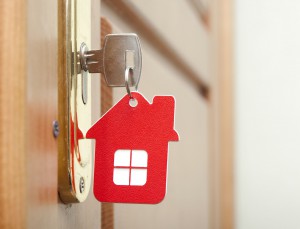Property is a brilliant asset class for creating wealth – so why aren’t more of us doing it?
Statistics reveal that only a small number of Australians actually put their money into any properties beyond their own home.
I would venture to say that two of the big reasons are:
- Fear of making a mistake and losing money
- Believing they’re not savvy enough to do it successfully
Personally, I’d be more afraid of relying solely on savings and superannuation as a long-term strategy – especially when there are so many ways to mitigate risk and generate excellent returns.
Here, I’ve targeted five major ‘fear-factors’ that cause new investors to hesitate, and outline why there’s usually no reason to panic.
1. What if my property doesn’t make money, or goes down in value?
Sure property markets ebb and flow in cycles.
This means the value of your property will languish or even drop back a little at some stage in the future.
The trick is to own investment grade properties – the type that will be recession resistant.
Then arather than try and predict the next downturn, be prepared for it knowing that the properties in your portfolio will increase in value in the long term.
2. I don’t know the first thing about property…
You don’t need to, initially, even though you’ll be more comfortable if you educate yourself through books, seminars and mentors.
First work out your finances, your borrowing capacity and your long-term goals (for example, do you want to retire on your rental income, or supplement your income now with positive cashflow properties?).
From there, consider using the services of a property strategist formulate a plan and then to help you find investments to fit your circumstances.
3. I don’t want the burden of more debt.
Yes, debt is daunting.
But in the world of property, it’s also necessary to achieving long-term financial freedom.
By meeting with mortgage brokers, analysing your borrowing power, buying within your means and having a buffer in place for financial emergencies, you will find that fear is often unfounded.
Debt can be done with minimal risk.
4. I can’t afford all the ongoing costs.
Property does come with ongoing costs, such as insurance, strata fees, repairs and periods of vacancy.
These can all be handled with planning, a sensible financial structure and a cash buffer.
A mortgage broker can help you work out how much you can afford to spend on a property while factoring in expenses and a slush-fund, so you won’t have to pay out of your own pocket.
Depreciation and tax benefits can also be used to offset expenses.
5. I don’t know how to be a landlord.
You can easily factor a property manager into the costs of your property. 
In fact you’d be foolish not to.
They’ll take care of collecting rents, repairs and finding new tenants.
A good property manager will also stay on top of the market rent and suggest increases when they’re due.
Although you’ll need to stay on top of the property’s activity, once it’s tenanted and has a manager in place, to some extent it becomes a set-and-forget asset.
Buying property is never risk-free, but the most common fears are usually unfounded – all you need is preparation and the ability to learn.
Certainly, fear shouldn’t hold you back.
Just surround yourself with educate yourself, then surround yourself with knowledgeable people, do your research and give yourself some financial breathing room to take care of unforeseen circumstances or expenses.

No comments:
Post a Comment